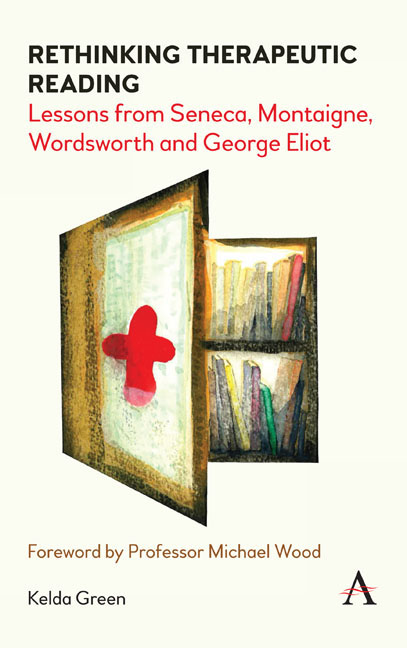5 - Experiment One: A First Reading
Published online by Cambridge University Press: 16 July 2020
Summary
Part I of this book has sought to examine the ways in which literature can serve as a repository for therapeutic thought and practice. By focusing on four representative literary models, spanning a period of two thousand years from Ancient Rome up until the nineteenth-century creation of the formal discipline of psychology, each of the previous four chapters have considered the different ways in which both readers and writers alike have used literature as a form of personal therapy.
The aim of Part II is to reactivate the arguments of Part I and demonstrate how theoretical literary study can benefit from accommodating more imaginative, empirical methodologies. For as Iain McGilchrist writes in Against Criticism, with specific reference to the study of Wordsworth, ‘To criticise his poetry properly one would need to have a knowledge of theology, philosophy, syntax, psychology and biology, as well as a powerful enough imagination to hold them all together, and to see them finally as an aspect of the same thing’.
Chapters 5 and 6 will set out the results of two practical reading experiments which demonstrate Wordsworth's poetry in action and thus illuminate its workings in ways that theoretical criticism cannot. Results of a third experimental study, based upon readers’ engagement with the work of George Eliot, will follow in Chapter 7. All three experiments are designed to investigate whether personal engagement with literature can open up particular areas and ways of thinking and thus illustrate the genuine use that literary reading can have in the real world. What is offered in the following three chapters is not, of course, final proof but supportive and testing evidence in relation to emerging positions and propositions.
The following three chapters seek to meet the challenge set out by Rita Felski in The Limits of Critique:
Literary theory would do well to reflect on – rather than condescend to – the uses of literature in everyday life: uses that we have hardly begun to understand. Such a reorientation, with any luck might inspire more capacious, and more publicly persuasive rationales for why literature, and the study of literature, matter.
- Type
- Chapter
- Information
- Rethinking Therapeutic ReadingLessons from Seneca, Montaigne, Wordsworth and George Eliot, pp. 99 - 128Publisher: Anthem PressPrint publication year: 2020



